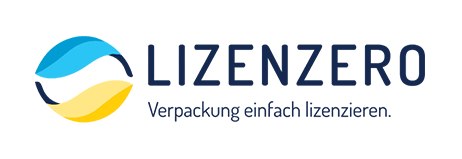Single-use plastic ban: New directive in force since 03 July 2021

Every year, rivers, wind and rain wash several million tonnes of carelessly disposed plastic waste into the oceans. Finely ground into micro plastics, it remains undecomposed in the environment. The result: marine life, which is essential for the balance of our ecosystem, dies or starves to death, and through fish and seafood, the plastic also enters the human food chain affecting our health.
The modern "to-go mentality" with the quick cup of coffee on the go or the dinner delivered home in plastic bowls significantly contributes to this development – a trend that has been reinforced by the pandemic in the past year and has caused packaging waste in Germany to grow by around ten per cent last year alone.
Already in the summer of 2019, the EU enacted the Directive (EU) 2019/904 on the reduction of the impact of certain plastic products on the environment (Single-Use Plastics Directive - EWKRL). Now it has been transposed into German law as of 03 July 2021. From this date, numerous single-use plastic products are banned both in Germany and in the EU.
Content:
- Which disposable plastic products are affected by the ban?
- What exactly is prohibited since July 2021?
- How to deal with old stock?
- What sanctions can be imposed for violations?
- How much packaging waste is generated throughout Germany?
- What else is being done to combat the flood of plastics?
- Criticism of the guidelines
Which disposable plastic products are affected by the ban?
Two aspects are decisive in determining whether a product is affected by the new ban: Firstly, the material (= does the product consist entirely or partly of plastic?) as well as the intended use (= is it intended for single use, i.e. not for reuse and thus not designed for multiple product cycles?).
All plastic products and single-use plastic products from the following categories are affected:
- Cotton buds
- Plastic cutlery, especially forks, knives, spoons and chopsticks
- Straws
- Stirrers
- Balloon sticks
- Beverage containers/cups made of expanded polystyrene ("Styrofoam") including closures and lids
- Food containers made of expanded polystyrene ("Styrofoam"), for foods that
- are intended to be consumed either at the restaurant site or as a takeaway dish
- are usually consumed out of the container
- can be consumed without further preparation such as cooking, boiling or heating
Important: Products made from bio-based and biodegradable plastics are explicitly also covered by the guidelines.
In addition to single-use plastic products as described above, packaging can also be affected by the ban. The factor that decides whether food packaging is subject to the ban is whether it tends to be carelessly discarded due to its volume or size (Directive (EU) 2019/904, Art. 12).
What exactly is prohibited since July 2021?
Since July 03, 2021, placing the affected single use plastics on the German market, meaning the first-time provision of an affected product – is no longer permitted. The ban therefore affects both manufacturers and importers.
Note: The term "placing on the market" refers in each case to the market of a member state. Items placed on the market in Germany before 03 July 2021 can no longer be placed on the market in another member state after the reference date.
How to deal with old stock?
Products that have already been placed on the market may be sold by the distributor beyond 03 July 2021. Requirement: The products must already be in the stock of a distributor/third party (this also applies to middlemen). This means that the products that were made available on the market before the deadline at the beginning of July can be resold. In this way accumulated stocks can be emptied and the senseless destruction of resources is prevented.
What sanctions can be imposed for violations?
A violation of the requirements constitutes an administrative offence and can be punished with a fine of up to 100,000 EUR. The state authorities are responsible for enforcement.
How much packaging waste is generated throughout Germany?
Packaging waste is increasing each year, both globally and in Germany. According to the Federal Environment Agency, 18.9 million tonnes of packaging waste were produced in 2018, the highest figure ever recorded. This is due to changing consumption habits, including the out-of-home consumption of food that is offered "to go". This has led to a massive increase in the number of disposable items and packaging as well as the associated use of plastics in recent years.

What else is being done to combat the flood of plastics?
Disposable plastic items that cannot be avoided, such as wet wipes, tobacco products with filters, beverage cups and sanitary pads, must in future be labelled in a clearly visible manner to inform consumers about the disposal methods to be avoided and the resulting negative environmental impacts.
Further approaches:
- From 2022, lightweight plastic bags will also be banned and may no longer be handed out to customers.
- As part of the amendment to the German Packaging Act, the deposit obligation will be extended from 2022. In future the deposit will also apply to disposable plastic beverage bottles and beverage cans. From 2024, all containers for milk and dairy products will also be subject to a deposit.
- The amendment to the German Packaging Act requires the minimum recycled content (recyclate = recycled plastic) for PET disposable beverage bottles to increase to 25 percent from 2025; from 2030, 30 percent recyclate is mandatory.
- From 2023 onwards, catering establishments (i.e. restaurants) must also offer reusable packaging as an alternative to disposable containers for food and drinks that are handed out for take-away. Exceptions apply to small businesses, which must at least fill containers brought in by customers (this is also a requirement of the amendment to the German Packaging Act of July 2021).
Criticism of the guidelines
The new ban on single-use plastics (EWKVerbotsV) and on the labelling of single-use plastics (EWKKennzV) resulting from the EU Single-Use Plastics Directive has drawn criticism, especially from environmental organisations. In particular, they fear that single-use plastic products would merely be replaced by products made of other materials. For many, the law does not go far enough; instead, they demand a nationwide reusable system in Germany.



